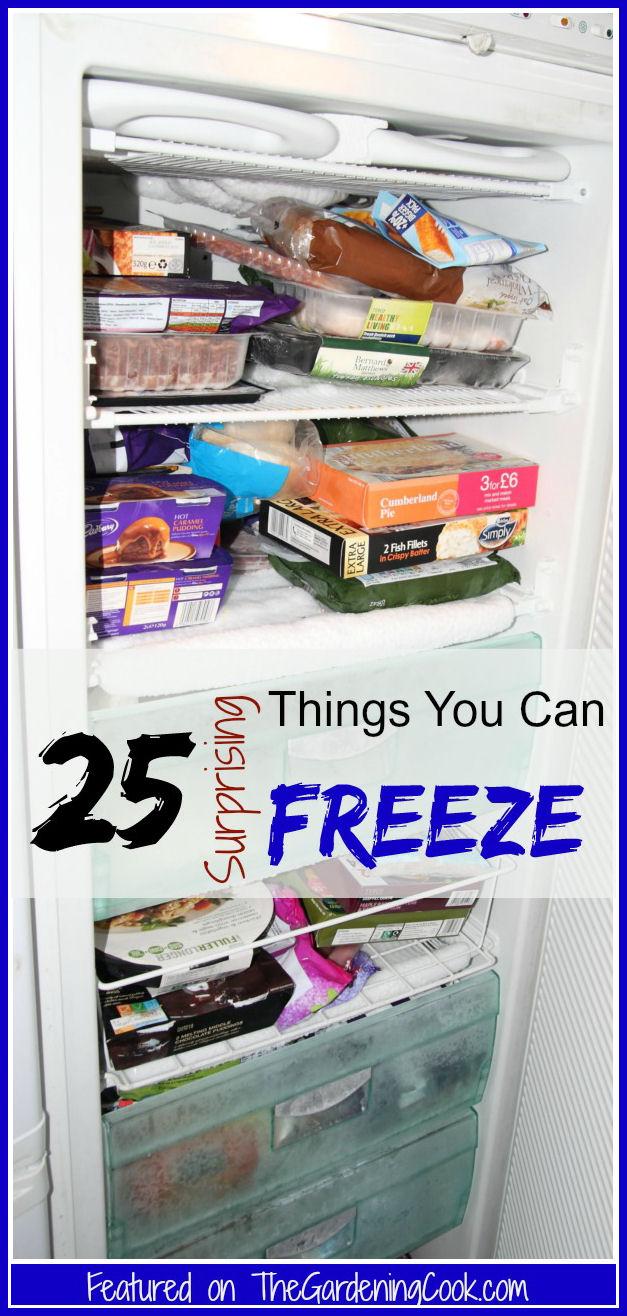Savvy use of your freezer space is more important than ever.
From cheese to eggs and even avocado, we answer the most asked questions about what you can and can’t freeze so you can cut down on food waste, while also limiting how much you need to venture out shopping.
We also offer some important safety guidelines you should always follow.
You can keep up to date on our latest coverage over on our coronavirus advice hub.
10 best cheap freezers and chest freezers
Can I freeze cheese?
Yes, cheese can be frozen for up to four months. Most hard cheeses, such as cheddar, will freeze well and without affecting their flavour. But be careful of soft cheeses – although they can be frozen it’s likely it will make them watery so you might want to keep the defrosted ones for cooking purposes.
Can I freeze milk?
Milk will freeze for one month but it can become lumpy when defrosted. Most people won’t want to drink it straight after it’s defrosted (do this in the fridge) but it will be fine for cooking. You could always try freezing it in ice cube trays and popping it in your tea and coffee (as long as you drink them quickly before it cools down.
Can I freeze cooked rice?
You can freeze cooked rice but always pack it in an air tight container straight after cooking so it traps in the steam for moisture. Let it cool down completely and then freeze it for up to one month.
Can I freeze eggs?
Yes, you can freeze eggs but not in their shells. Always crack them into freezer-safe containers or bags. If kept in their shells, the eggs will expand and crack making them inedible.

Can I freeze cooked chicken?
Frozen cooked chicken can be safely stored for up to three months. Always defrost thoroughly in a microwave or in the fridge overnight.
Can I freeze potatoes?
Always cook your potatoes before freezing so they don’t turn grainy.
Can I freeze butter?
Butter and margarine can be frozen safely for three months – any longer and it may get frost burn.
Find out which brand was crowned the best frozen pizza.
More foods you can freeze
Cooked pasta – but make sure you cook it al dente beforehand otherwise it will go mushy. Try tossing it in a little olive oil, too. That way it shouldn’t stick together as much
Bread – except the crusty varieties can be frozen for around three months. Slice before freezing so you can pop it straight in the toaster.
Raw pastry – can be frozen for around six month and should only take one hour to defrost.
Yogurt and cream – although best used only for cooking after freezing as both can separate and become lumpy once defrosted.
Stock – try putting into an ice cube tray to make it easy to use straight from the freezer.
Foods you can’t freeze
Fried food – the oil will seep through, leaving the food soggy and changing its flavour.
Salad greens – lettuce will just turn to gloop if frozen.
Herbs – like basil and chives can be frozen but will only be suitable to add to cooking dishes rather than garnishing.
Mayonnaise – and other egg-based sauces will just separate and curdle when frozen.
Vegetables with high water content – such as cucumber, bean sprouts and radishes, will go soggy.
What fruit and vegetables can I freeze?
Tomatoes – but only if they are cooked. Freezing them raw can make them turn slimy.
Bananas – peel them, cut them or leave whole and freeze them flat on a tray before transferring them to a container or freezer bag. Frozen bananas are great for adding to smoothies.
Carrots and broccoli – chop and cook until dente then freeze in batches.
Peppers – wash the pepper and remove the seeds, slice and freeze in an air tight bag. You can even freeze peppers whole if you like to stuff them.
Avocados – slice in half, peel from the skin, mash or leave solid, squeeze some lemon juice over and put it in an airtight freezer bag.
Seven ways to fit more food in your freezer.
How to freeze and defrost food safely
Freezing your food means it won’t deteriorate and stops most bacteria from growing in it – if you freeze and thaw correctly, that is. Here’s some safety steps to follow:
How to defrost your freezer.









